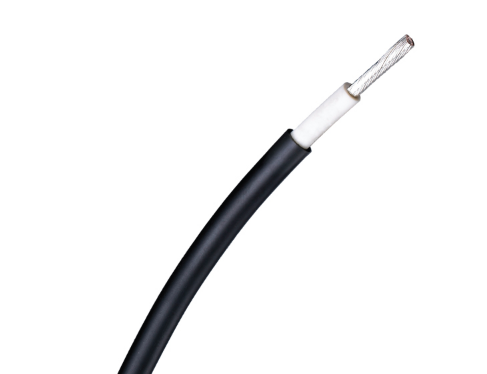Frequently Asked Questions: Hook-Up and Lead Wire
What is Hook-Up Wire?
Hook-Up Wire is a wire with a single insulated conductor that may be used for low-voltage, low-current applications. Hook-Up wire works well in enclosed spaces and comes in a wide variety of constructions with various conductors, insulations, and jacket materials available. Most hook-up wire is rated at 600V, but temperature ratings vary depending on construction.
Applications of Hook-Up Wire
Hook-up wire is a versatile component used in a wide range of applications. It is commonly found in control panels, automotive systems, meters, ovens, and the internal wiring of computers and electronic equipment. It is also used in business machines and various appliances. Hook-up wire is primarily utilized within enclosed electronic equipment, and certain types are even suitable for demanding military applications.
What types of insulation materials are available for Hook-Up Wire?
PVC
PTFE
EPDM (ethylene-propylene-diene elastomer)
Hypalon
Neoprene
Silicone Rubber

Identifying Hook-Up Wires
Every wiring category has its own system for identifying cables. For instance, power cables use a series of letters, multi-conductor cables describe the construction, and cable management products specify the type of material. Hook-up wires are similar but have a much wider range of constructions compared to many other categories. These various products are identified by different UL and CSA certifications.
CSA Hook-Up Wire
Most hook-up wires are identified by specific designations like the common CSA and UL labels. While these designations may represent similar products, they do not have the same meaning. CSA designations for hook-up wire include popular types such as CSA REW, CSA TEW, CSA SEW, and Type SIS. These designations are set by the Canadian Standards Association (CSA). The CSA is also responsible for additional approvals typically linked to the application or its location, such as CSA FT-4 or CSA AWM.
CSA hook-up wires also have very similar names like TEW, SEW, and REW, with each letter representing something completely different.
REW = Raidiated Equipment Wire
TEW = Thermoplastic Equipment Wire
SEW = Silicone Equipment Wire
UL Hook-Up Wire
Both UL and CSA provide approvals for hook-up wire, though there are some differences in their ratings. UL certifications often specify different ratings for various gauge sizes, whereas CSA typically has a single rating for all gauge sizes of a particular construction. Additionally, UL hook-up wire usually have consistent voltage ratings, though they may be lower than CSA ratings. UL designations vary slightly from CSA due to the diverse countries using UL standards. Overall, UL is a widely recognized designation similar to CSA but can be rated for lower voltage applications.
High-Temperature Hook-Up Wire
High-temperature hook-up wire is insulated with materials such as Teflon (PTFE, ETFE) or more flexible silicone. These insulations are designed to withstand operating temperatures of 200°C and sometimes even higher. Though less commonly used, these wires are essential for applications requiring larger gauge sizes and high voltage levels.
For instance, Sycor's high-temperature lead wires can reach up to 4/0 gauge, while standard configurations typically do not exceed 8 AWG. Another significant difference is the voltage rating. Standard hook-up wires with PVC and XLPE insulation usually have a single voltage rating. In contrast, high-temperature wires often offer two voltage ratings: 300 volts for smaller gauges and 600 volts for larger ones.
Conclusion
Hook-up wire is one of the most widely used cabling categories globally. It's ideal for applications such as the internal wiring of electrical equipment, leads for transformers, and motors. These simple constructions are perfect for numerous applications due to their smaller gauge, cost-effectiveness, versatility, flexibility, and resistance. Whether your project is straightforward or highly complex, these multi-purpose wires offer a construction to meet your team's needs.
